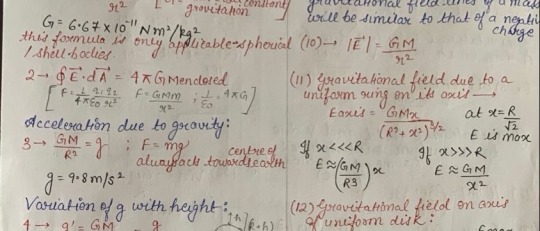#Language and Computers
Explore tagged Tumblr posts
Text
Language and computers (Open Access)
Lelia Glass, Markus Dickinson, Chris Brew, Detmar Meurers
This book offers an accessible introduction to the ways that language is processed and produced by computers, a field that has recently exploded in interest. The book covers writing systems, tools to help people write, computer-assisted language learning, the multidisciplinary study of text as data, text classification, information retrieval, machine translation, and dialog. Throughout, we emphasize insights from linguistics along with the ethical and social consequences of emerging technology. This book welcomes students from diverse intellectual backgrounds to learn new technical tools and to appreciate rich language data, thus widening the bridge between linguistics and computer science.
#linguistics#lingblr#academia#langblr#phd life#computer science#natural language#Language and Computers
9 notes
·
View notes
Text
Tried an LLM-powered thesaurus today just for giggles and it helpfully informed me that a synonym for "leg" is "penis".
2K notes
·
View notes
Text

This is what happens inside the buddy towers while they wait for Kirby, me thinks
Based on this post I made about Dedede watching TV and this amazing tag someone reblogged it with

#kirby#kots#kirby of the stars#kirby fanart#hoshi no kirby#king dedede#meta knight#kirby meme#metadede#Kirby fighters 2 is forever the gift that keeps on giving#on other news i finally learnt how to make animations on clip studio#does anyone know how to upload gifs to the gif machine im computer illiterate#meta knight’s love language is fighting#dedede is just stubborn and gets actually pissy#do you know how hard it is to accommodate kirby characters on a base for a meme#with their weird anatomy and lack of limbs#meta knight can’t sit crossed legged and dedede doesn’t have knees#so i did my best#if someone already drew this meme im so sorry#i just fucking realized i fucked up dedede’s clothes in the last frame i may as well end it all
2K notes
·
View notes
Text
"There was an exchange on Twitter a while back where someone said, ‘What is artificial intelligence?' And someone else said, 'A poor choice of words in 1954'," he says. "And, you know, they’re right. I think that if we had chosen a different phrase for it, back in the '50s, we might have avoided a lot of the confusion that we're having now." So if he had to invent a term, what would it be? His answer is instant: applied statistics. "It's genuinely amazing that...these sorts of things can be extracted from a statistical analysis of a large body of text," he says. But, in his view, that doesn't make the tools intelligent. Applied statistics is a far more precise descriptor, "but no one wants to use that term, because it's not as sexy".
'The machines we have now are not conscious', Lunch with the FT, Ted Chiang, by Madhumita Murgia, 3 June/4 June 2023
#quote#Ted Chiang#AI#artificial intelligence#technology#ChatGPT#Madhumita Murgia#intelligence#consciousness#sentience#scifi#science fiction#Chiang#statistics#applied statistics#terminology#language#digital#computers
24K notes
·
View notes
Text
alright nerds--
^tried to include as many as possible
#studyblr#polls#tumblr polls#academics#academic polls#studyblr polls#studying#learning#college#university#academic#language#langblr#archaeology#anthropology#sociology#psychologoy#psych#medblr#history#forensics#csi#math#physics#mathblr#mathematics#computer science#science#compsci#biology
1K notes
·
View notes
Text
you know english infiltrating other languages due to the internet has become a problem when even the french are doing it
#languages#french#game of roles#I just had to hear french DM say the word “viewers” with a french accent and Idk if I'll recover#the french aka the ppl who insisted on even translating the words 'computer' and 'software'#while everyone else was like eh and used the english words for tech stuff anyway
1K notes
·
View notes
Text


Fun fact: Immediately after this, my screen darkened then faded to a computer background-type selection of IRL landscapes titled “Beautiful Art.” I pressed all the buttons on the console, but couldn’t leave that screen. I had to turn the TV off & on again to get things back to normal. This lasted like 3 minutes.
This was my first playthrough so I thought this was just a fucking terrifying feature nobody talked about until telling my mutual. I still have no clue what the actual fuck happened. Help me.
#safeutdr#safe utdr#queen deltarune#queen dr#deltarune#I’m on the PlayStation btw. also IMPORTANT TK KNOW. the ‘beautiful art’ was in my native language NOT English#Ngl… I think the tv just accidentally connected to my dad’s computer (he was using it at the time and the whole thing looked like somethign#he would have)#but the chances of this being a Terrifying PS Prank até low but never zero.#mine
843 notes
·
View notes
Text




do you ever wonder how old the twins are? how long have they been with the one who waits? do you ever think about how much of that time in the veil narinder spent totally alone, about how much of a stabilizing presence it might have been to have literally else around, after all that time? i think about it a completely normal amount, personally,
#my art#cotl#cotl the one who waits#cotl baal#cotl aym#eyestrain#do you ever wonder what it would look like for an eternal concept to wish it didnt exist?#in my mind its something akin to watching a computer screen bug out. or like watching something dissolve into particle effects#anyways. cotl is fun bc instead of looking at character references 90% the time i am looking at refs for animal body language
5K notes
·
View notes
Text






Bellara!Dorian brings this "excitable magic nerd" energy that I think really suits Dorian very well also he's adorable and i love him
#dorian pavus#i didn't realize until I did this just how idiosyncratic bellara's body language is#sorry some of these are so dark btw (although my computer brightness is very low so maybe they're not that dark at all idk)#this isn't a Serious Endeavor so i haven't the patience for much editing#()does edits
259 notes
·
View notes
Text

happy robot sex year yay yippee
#suggestive#cw suggestive#tw suggestive#if someone is wondering yes i gave madeline moles and stretch marks and acne#eletric dreams 1984#madeline electric dreams#electric dreams edgar#eletric dreams#electric dreams (1984)#edgar electric dreams#electric dreams#electric dreams 1984#electric dreams egdar#electric dreams fanart#electric dreams madeline#eletric dreams edgar#madeline robistat#madeline#edgar x madeline#madeline x edgar#cw nudity#tw nudity#tw suggestive language#objectum#objectosexual#objectum for computers#techum#edgar#my art#robot fucker
513 notes
·
View notes
Text
I'm not a linguist and I find the whole excercise of conlanging, while I love it and respect it, beyond my abilities, but I do have one thing or two to say about linguistic diversity and how boring is to have a "common" or "basic" language in fantasy or science fiction without exploring the implications.
Being a bilingual speaker of Spanish and English, and someone that because of work reasons and entertaiment tastes interacts a lot with English, I tend to see English as the equivalent of those "common" or "basic" languages of speculative fantasy. As a useful tool for communication, science technology and commerce. In real life, however, as you are aware, the expansion of English tends to undermine local languages, it's considered more valuable to know English that to know the language of your grandparents, or learn any other language you just feel curious about.
The experiences of every multilingual person are different, but in mine I know English, I write and read and listen to English a lot. But I don't consider myself an English *speaker*, I speak Spanish and more to the point Argentine Spanish, that's the culture I identify with, and it's the language I use to express my feelings and inner thoughts. I can't imagine saying "I love you" to anyone in English, to me it's just a tool I use to access to knowledge or communicate through language barriers ("basic", "common"). But interestingly, by both writing and participating in the wider English-speaker internet culture, isn't it part of my own culture, as an individual, too?
The fact is that English also has a culture(s) and a history and a corpus of literature. So when we write about "Common" or "Basic" languages in fiction we need to ask ourselves: where did they come from? How did they become the standard? Is there a literature, a canon, a culture of "Common" in your fantasy world? What about other languages, other cultures that aren't raised learning it and see it just as a tool? Because no matter the strenght of Anglophone cultural imperialism and the social value of learning English, I don't see Argentines, or for that matter Chinese, Italians or Russians abandoning their first language. And yet even in English and in all other languages (ESPECIALLY other languages, English is remarkably uniform) there is a variety of dialects. And we need to remember, once Latin was spoken only in a village in central Italy, and English in a rather remote rainy island. They weren't destined to have their future roles, history drives language.
So, when an author goes for the "universal language" explanation to avoid linguistic misunderstandings, for me, it raises more questions that I believe are worth exploring.
#cosas mias#anyways I will write more WHEN I get my computer I can't type unhinged rants like this#worldbuilding#linguistics#language#biotipo worldbuilding
868 notes
·
View notes
Text










Next part of the silly thing
#yes there are mistakes#english is not my first language#also#yes this is supposed to be a choice game but i wasn’t sure of how to translate it to tumblr#this was originally a story on instagram#it was way more fun#sorry to disappoint#you would be surprised#of how many people chose to kiss him#respect boundaries#wth#anyways#yeah sans wants you#and he is an asshole mb#also i imagine him like a computer guy idk why
662 notes
·
View notes
Text

Hollyleaf- ms paint with a mouse
#warrior cats#warriors#thunderclan#hollyleaf#a college friend has access to the gaming room on campus#he lets me in and so ive been doodle these kitties#on ms paint on super nice computers hahahaha#love playing with shape language
593 notes
·
View notes
Text
back to basics


mostly free resources to help you learn the basics that i've gathered for myself so far that i think are cool
everyday
gcfglobal - about the internet, online safety and for kids, life skills like applying for jobs, career planning, resume writing, online learning, today's skills like 3d printing, photoshop, smartphone basics, microsoft office apps, and mac friendly. they have core skills like reading, math, science, language learning - some topics are sparse so hopefully they keep adding things on. great site to start off on learning.
handsonbanking - learn about finances. after highschool, credit, banking, investing, money management, debt, goal setting, loans, cars, small businesses, military, insurance, retirement, etc.
bbc - learning for all ages. primary to adult. arts, history, science, math, reading, english, french, all the way to functional and vocational skills for adults as well, great site!
education.ket - workplace essential skills
general education
mathsgenie - GCSE revision, grade 1-9, math stages 1-14, provides more resources! completely free.
khan academy - pre-k to college, life skills, test prep (sats, mcat, etc), get ready courses, AP, partner courses like NASA, etc. so much more!
aleks - k-12 + higher ed learning program. adapts to each student.
biology4kids - learn biology
cosmos4kids - learn astronomy basics
chem4kids - learn chemistry
physics4kids - learn physics
numbernut - math basics (arithmetic, fractions and decimals, roots and exponents, prealgebra)
education.ket - primary to adult. includes highschool equivalent test prep, the core skills. they have a free resource library and they sell workbooks. they have one on work-life essentials (high demand career sectors + soft skills)
youtube channels
the organic chemistry tutor
khanacademy
crashcourse
tabletclassmath
2minmaths
kevinmathscience
professor leonard
greenemath
mathantics
3blue1brown
literacy
readworks - reading comprehension, build background knowledge, grow your vocabulary, strengthen strategic reading
chompchomp - grammar knowledge
tutors
not the "free resource" part of this post but sometimes we forget we can be tutored especially as an adult. just because we don't have formal education does not mean we can't get 1:1 teaching! please do you research and don't be afraid to try out different tutors. and remember you're not dumb just because someone's teaching style doesn't match up with your learning style.
cambridge coaching - medical school, mba and business, law school, graduate, college academics, high school and college process, middle school and high school admissions
preply - language tutoring. affordable!
revolutionprep - math, science, english, history, computer science (ap, html/css, java, python c++), foreign languages (german, korean, french, italian, spanish, japanese, chinese, esl)
varsity tutors - k-5 subjects, ap, test prep, languages, math, science & engineering, coding, homeschool, college essays, essay editing, etc
chegg - biology, business, engineering/computer science, math, homework help, textbook support, rent and buying books
learn to be - k-12 subjects
for languages
lingq - app. created by steve kaufmann, a polygot (fluent in 20+ languages) an amazing language learning platform that compiles content in 20+ languages like podcasts, graded readers, story times, vlogs, radio, books, the feature to put in your own books! immersion, comprehensible input.
flexiclasses - option to study abroad, resources to learn, mandarin, cantonese, japanese, vietnamese, korean, italian, russian, taiwanese hokkien, shanghainese.
fluentin3months - bootcamp, consultation available, languages: spanish, french, korean, german, chinese, japanese, russian, italian.
fluenz - spanish immersion both online and in person - intensive.
pimsleur - not tutoring** online learning using apps and their method. up to 50 languages, free trial available.
incase time has passed since i last posted this, check on the original post (not the reblogs) to see if i updated link or added new resources. i think i want to add laguage resources at some point too but until then, happy learning!!
#study#education resources#resources#learning#language learning#math#english languages#languages#japanese#mandarin#arabic#italian#computer science#wed design#coding#codeblr#fluency#online learning#learn#digital learning#education#studyinspo#study resources#educate yourselves#self improvement#mathematics#mathblr#resource
794 notes
·
View notes
Text

My friend, are you, too, dappled with the textures of your rocky mountains?
[ID: digital illustration of an Andean cat and a snow leopard in a purple background, framed with various details in gold. The felids seem to be coming down from the heights, looking towards each other, you can see their similarly grey pelts, the Andean cat's painted with elongated, brown and purple spots, and the snow leopard's with blocky, dark purple ones. Each cat has a bright yellow spark behind them, and there's a big rhomboid star between the two. There are less vibrant stars scattered in the background. The frame shows mountains at the top and the bottom; the ones at the top are four from the Himalaya: Nanda Devi, Dhaulagiri, Kachenjunga and Mount Everest. At the bottom, the Andes are represented by three mountains: Ojos del Salado, Huascarán and Nevado Tres Cruces. The corners at the top have a Siberian ibex and a chinchilla each, reversed at the bottom, these are prey to these cats. On the sides, a plant, a star, a sun and a moon, divided by zigzags, decorate the frame. Their respective scientific names are written in square letters: Leopardus jacobitus for the Andean cat and Panthera uncia for the snow leopard, with a paw print after each one. End ID]
I was thinking the other day how similar these two are, despite being apart both taxonomically and spatially, and this idea would not leave my head until I finished it, so here :]
Drawing them from this angle was a challenge, and then I decided to spend more time researching mountains from their respective habitats to decorate the frame, trying to make it so they overlapped with their registered populations, so this took longer than I anticipated, but I'm happy with the results :D!
#irbis draws#animal art#felids#animal artist#felidae#pantherines#felines#andean cat#snow leopard#mannnn i hate decorating frames. i guess you can tell by the zigzags i just never know what to put there#moon sun and stars the old reliables#kid me loved decorating frames.i dont know what happened#my mom asked me if this was a commission and i was like no??#'then why are you decorating frames if you hate it?'#the visions said this had a frame. if i am to stop the visions then i shall accomplish them as they came to me#love how the name of the mountains from the Andes dont have a red line below in my computer and the gap clearly stands out#reminds me of the Aotearoa poem about writting things from another language in italics so that the reader knows theyre foreign words#Kupu rere ke <- the poem
81 notes
·
View notes
Text
guys. edwin canonically speaks multiple languages. george rextrew speaks multiple languages.
what if in season 2 they meet someone who only speaks like, french (for the sake of this scenario) or something. and none of them know what to do, and edwin just bursts out in PERFECT FRENCH and when the client has left he just goes "my french is a little rusty so it might be a bit wrong here and there but i think i got it :)" and everyone just dies because how on earth did that just happen
#dead boy detectives#charles rowland#edwin payne#crystal palace#pushing my edwin payne speaking/understanding a bunch of languages agenda#hello fic writers#this idea is litteraly right here#when they get together i need edwin to refer to charles as mon coer or mon amour or something at least once#excuse the fact that i've had to use only french here because that is my only other language#it would be cute#and every time he calls him a french pet name charles' brain fails to compute#straight up *error 404: charles not found*#and edwin just does that little smirk#my obsession levels are reaching critical guys
190 notes
·
View notes